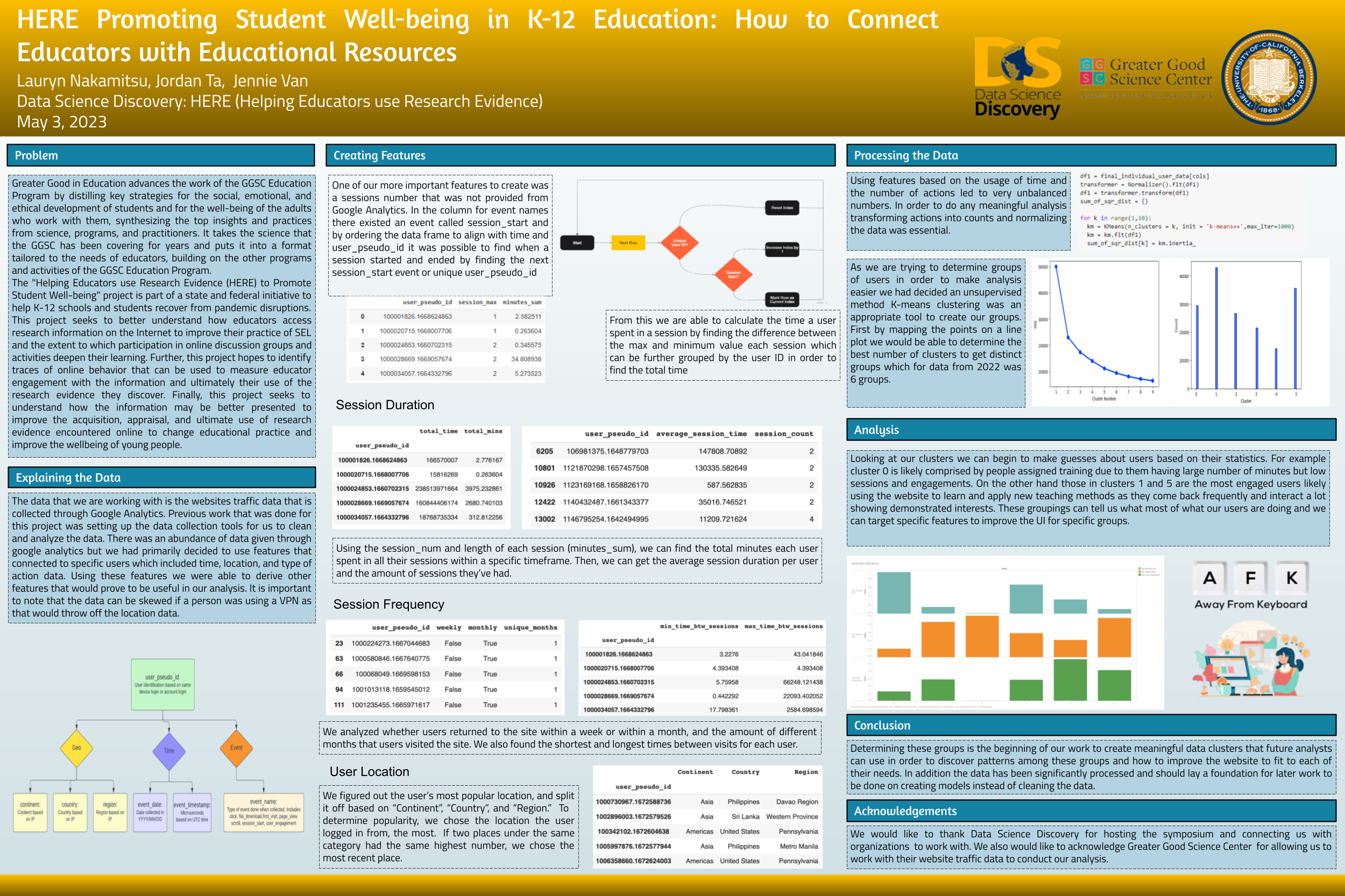Greater Good in Education is produced by UC Berkeley's Greater Good Science Center (GGSC). The GGSC studies the psychology, sociology, and neuroscience of well-being and teaches skills that foster a thriving, resilient, and compassionate society--what we call "the science of a meaningful life."
As part of the GGSC, our Education Program presents education professionals with practical, scientific
insights that help them bring the science of a meaningful life into their lives, schools, and classrooms. It draws on disciplines such as social-emotional learning (SEL), mindfulness, character education, and related topics. Our goal is to help them better understand the roots of kind, helpful--or "prosocial"--behavior and emotional well-being, and how they can build those skills in themselves, their colleagues, and their students.
Greater Good in Education advances the work of the GGSC Education Program by distilling key strategies for the social, emotional, and ethical development of students and for the well-being of the adults who work with them, synthesizing the top insights and practices from science, programs, and practitioners. It takes the science that the GGSC has been covering for years and puts it into a format tailored to the needs of educators, building on the other programs and activities of the GGSC Education Program.
Behavioral health problems like depression, substance misuse, academic disengagement, and violence are common in young people, but many of these problems are preventable! Research has demonstrated how social and emotional learning (SEL) in schools can greatly improve the wellbeing and achievement of young people. SEL includes celebrating identity, belonging, agency, collaborative decision-making, and curiosity -- promoting these focal constructs among adults and students in school, as well as transforming systems to reimagine K-12 education in this image.
Unfortunately, SEL research isn’t easily accessed and used by educators. Translating scientific advancements into the improved well-being of young people is a major challenge facing social scientists, educators, and ultimately, children, families, and communities. To see one way we are trying translate science into practice at UC Berkeley, please visit Greater Good in Education (https://ggie.berkeley.edu/). But what kind of impact does this kind of website have on what educators actually think and do? Can we measure its impact and use this insight to improve our approach?
The "Helping Educators use Research Evidence (HERE) to Promote Student Well-being" project is part of a state and federal initiative to help K-12 schools and students recover from pandemic disruptions. This project seeks to better understand how educators access research information on the Internet to improve their practice of SEL and the extent to which participation in online discussion groups and activities deepen their learning. Further, this project hopes to identify traces of online behavior that can be used to measure educator engagement with the information and ultimately their use of the research evidence they discover. Finally, this project seeks to understand how the information may be better presented to improve the acquisition, appraisal, and ultimate use of research evidence encountered online to change educational practice and improve the wellbeing of young people.
Please note that this project is part of a research-practice partnership, co-hosted by faculty at UC Berkeley and K-12 educational leaders around the state of California. Therefore, objectives are both to answer academic research questions and to promote the utilization of information for social change.

